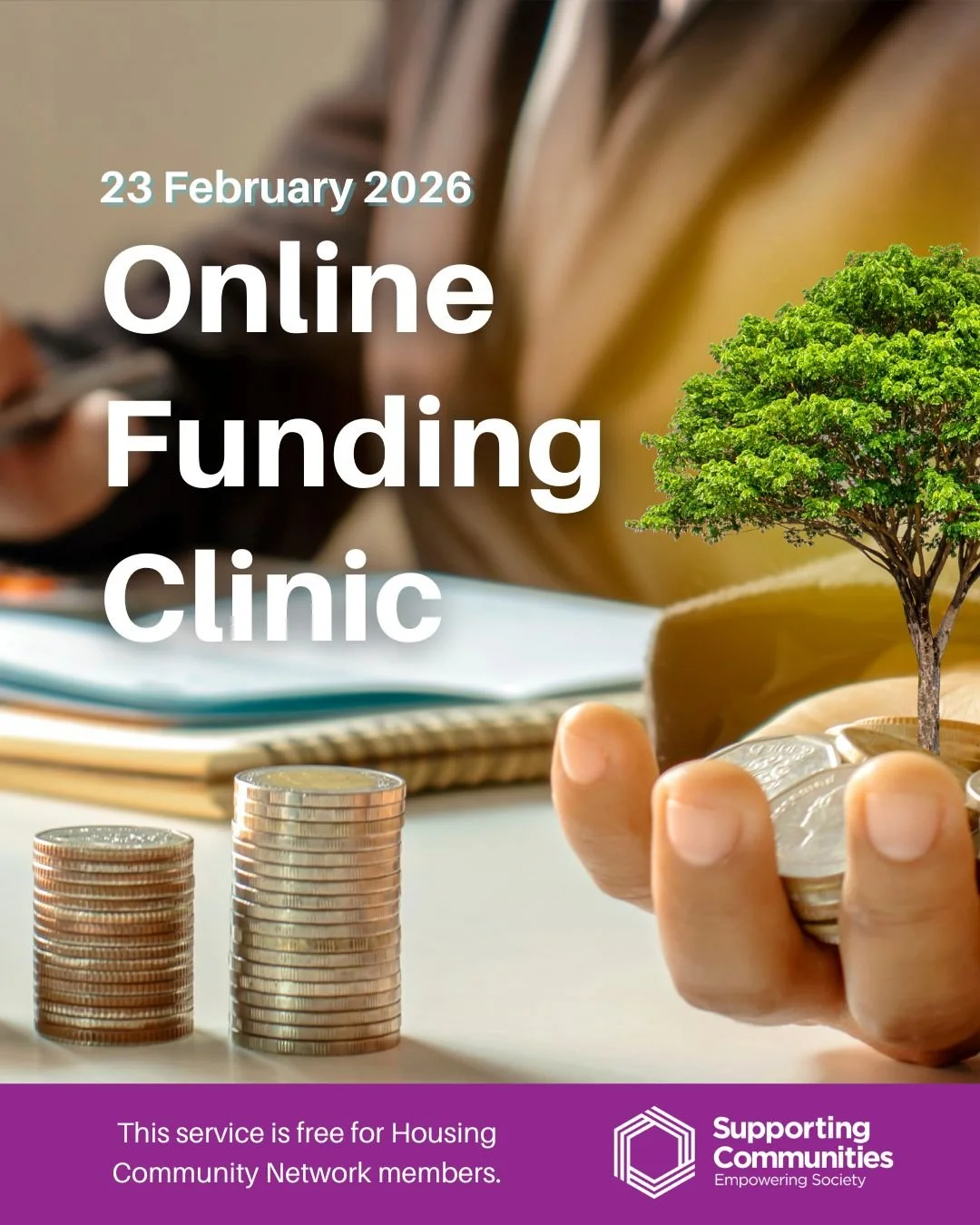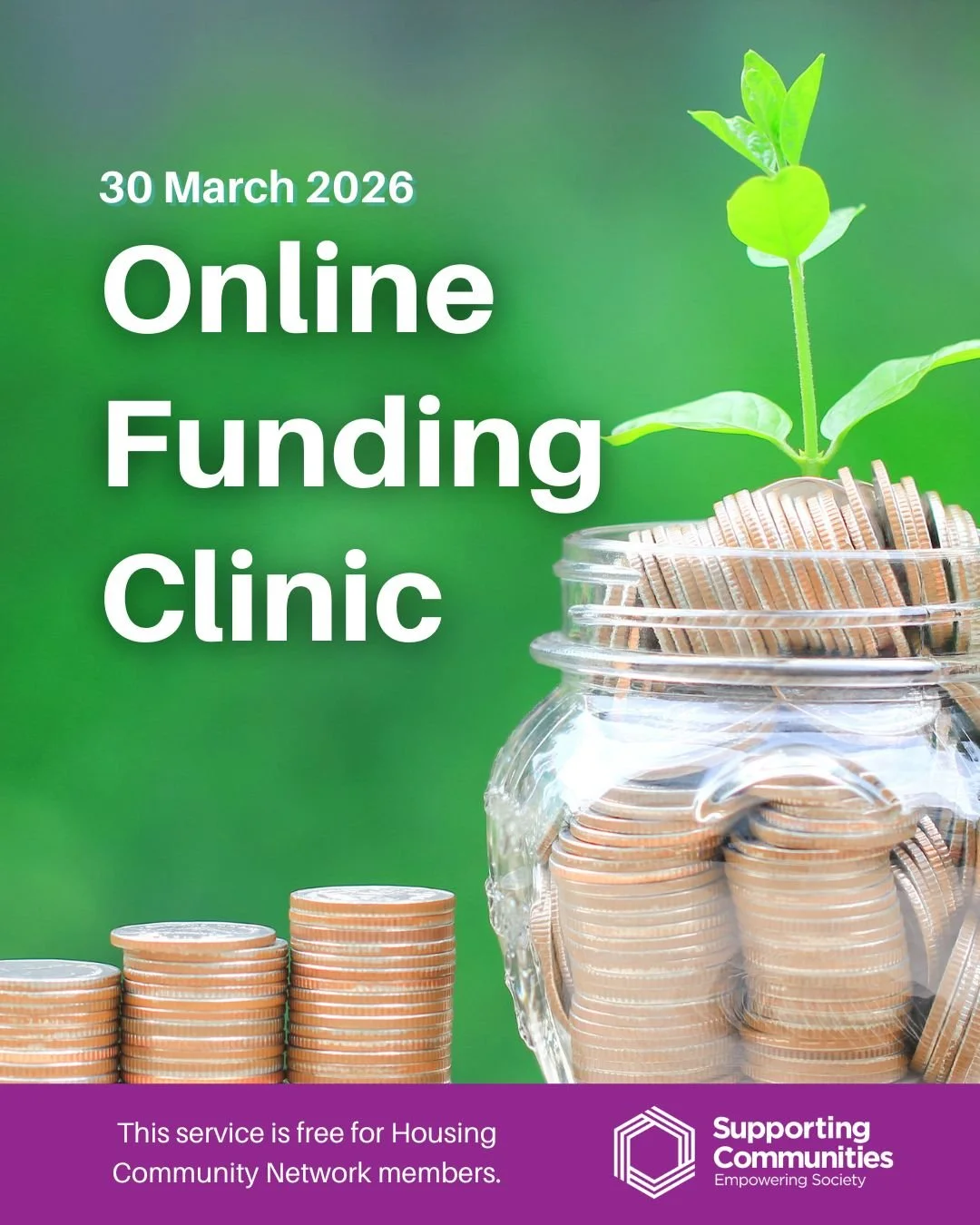Homeless Prevention Fund 2023/24
/The Homeless Prevention Fund was first introduced in 2019/20, and in the past three years the Housing Executive has recognised the significant positive impact by the projects achieved through the grant funding. The new Homelessness Strategy 2022-27 sets out the need to continue to prioritise prevention, and the Homeless Prevention Fund is an effective approach to contribute to this.
NIHE are seeking applications from constituted groups in receipt of homelessness funding, supporting people funding, social enterprise funding, or constituted groups working with key homeless client groups with endorsement from the local NIHE Area Manager.
In line with the 2022-2027 Homelessness Strategy, Ending Homelessness Together, the following key priority areas and delivery approaches have been identified for this year’s Prevention fund:-
2022 – 2027 Homelessness Strategy prevention activities:
· Primary Prevention Activity – Universal policies and interventions for the population as a whole which will not only be related to housing. This will also include raising awareness to assist in the public’s understanding of the complex nature of homelessness to ensure households approaching crisis can access support.
· Secondary Prevention Activity - Identifying and targeting particular groups which are at the highest risk of homelessness to undertake pre-crisis intervention. This can take the form of advice and mediation services; proactive interventions and targeted services at known risk points.
· Tertiary Prevention Activity - Tackling recurring homelessness, including ensuring tenancy sustainment is central to preventing repeat homelessness.
Priority Vulnerable Groups
· Youth homeless including former care leavers;
· Older people;
· Victims of domestic abuse;
· Those experiencing or impacted by addictions;
· Those with mental ill-health;
· Those at risk of losing private rented sector accommodation;
· Those with lived experience in the criminal justice system
Please note that projects providing secondary intervention activities to the key vulnerable groups identified above are particularly sought, with similarly targeted primary and tertiary based projects also being considered. Those projects found not to be sufficiently aligned with the defined prevention activities listed will not be progressed for further assessment.
There are many social, economic and family factors that can result in a household becoming homeless. These factors are outlined throughout the Strategy.
The 2023/24 Homeless Prevention fund will focus on the following models;
a) Intervention models - (either by mediation and/or counselling or through direct financial support);
b) Training models - (to empower and equip sector workers who have been identified as working with those at risk of homelessness);
c) Personal development models – (to provide a structured training programme to empower and equip participants who have been identified as at risk of homelessness) and;
d) Awareness Models - (which seek to raise awareness of the complex nature of homelessness and available support services among the general public, sector workers or individuals who have been identified as at risk of homelessness).
e) Social Enterprise model – (to improve communities, tackle social issues and provide access to employment and skills training for individuals identified as at risk of homelessness). These projects are separate from those funded through the Social Enterprise fund and can be viewed as complementary to these where the focus is on preventing vulnerable individuals becoming homeless.
The focus of the Fund will be on models that directly benefit the customer. Applications for the following models will therefore be of particular interest:-
a) Intervention model – (by providing direct financial support);
b) Intervention model – (through mediation and/or counselling support) and;
c) Personal development models – (to provide a structured training programme to empower and equip participants who have been identified as at risk of homelessness).
Our objective is to provide 2023/24 Homeless Prevention funding for up to a maximum of 10 months from 1st June, and costings are sought on this basis. In the event that the project duration is shortened (due to a potential delay in budget clarification) we will seek to recalibrate the 10 month project costs to reflect the shorter timeframe and agree this with you. (In the best case scenario we aim to be able to notify you in mid-May to enable project commencement from 1st June 2023). Please provide as much detail as possible on the costings as this will hopefully minimise any unnecessary future correspondence if your project is shortlisted by our panel.
A maximum grant of £50k will be awarded to applicants for up to 10 months.
Please be advised that funding awarded will be non-recurrent and will have to be spent by the 31st March 2024.
If you have any queries, please contact the staff below:
Michael Davidson E: michael1.davidson@nihe.gov.uk T: 028 959 83306
Andrew Kenny E: andrew.kenny@nihe.gov.uk T: 028 959 82924
PLEASE NOTE THAT THE DEADLINE FOR APPLICATIONS IS 5.00 PM on Friday 14th April 2023








